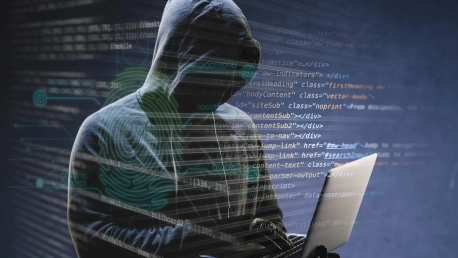In the dazzling realm of Hollywood, where the lines between fiction and reality often become indistinct, the concept of hacking has found its place as a beloved narrative tool. It evokes visions of solitary tech savants, immersed in the soft glow of their computer screens, effortlessly penetrating the world’s most secure digital strongholds with rapid keystrokes. The archetype of the hacker has been ingrained in film mythology, reflecting both society’s awe of digital mastery and its fears of vulnerability in an increasingly online world. This trope has become a staple in storytelling, providing a mix of tension, intrigue, and the thrill of the impossible made possible. Directors and writers capitalize on the mysterious allure of the hacker figure, crafting scenes that tap into the public’s fascination with this modern form of wizardry while often forsaking the reality of the painstaking and meticulous nature of actual hacking.
The Allure of the Unknown
The birth of the digital age brought with it a litany of shadowy corners and unexplored territories. To Hollywood, these represented a fertile ground for storytelling, where the unknown could be wielded to create tension and drama. Hacking, as a tool, was poetic — it abstracted the complex world of cyber technology into a thrilling cat-and-mouse game easily understood by audiences. Producers discovered that hacking could act as a crystalline bridge, translating esoteric digital threats into visual stories brimming with urgency and intrigue.Filmmakers soon latched onto this goldmine of narrative potential, crafting scenes where the stakes were global, and the hero’s weapon was intellect, not brawn. Movies like “WarGames” and “Sneakers” set the stage for what was to become a full-fledged genre. As technology advanced, so did the gloss of the hacker character — an outlaw coder fighting against a corrupt system, serving justice one keystroke at a time. The archetype resonated with an audience increasingly aware of the digital revolution happening around them, even if they did not fully understand it.
Dramatization Over Reality
Truth, they say, is often stranger than fiction — but in Hollywood, fiction sells tickets. The intricate realities of hacking, involving long, painstaking work and a deep understanding of complex systems, did not lend themselves well to the fast-paced narrative expected in movies and TV shows. Instead, screenwriters distilled hacking into a series of rapid-fire keystrokes, dramatic “access denied” prompts followed by the victorious “we’re in.”Tech-savvy viewers would scoff at the oversimplification, yet the average moviegoer basked in the thrill. Cybersecurity experts were brought in to advise directors, only to see their complex explanations reduced to snippets that supported a narrative, rather than conveyed the truth. As the internet grew more entwined with everyday life, these portrayals took on a new dimension of fantasy, one that portrayed hackers as wizards, bending the digital world to their will with ease and panache.
Epilogue: Fantasy versus Future
Hollywood has turned hacking into a spectator sport, where the line between reality and fantasy continues to blur. In this universe, hackers remain the beloved antiheroes, facing off against evil corporations and dystopian governments. While some films and series aim to bring authenticity to the table, the seductive lure of the hacker fantasy persists.As we push further into an era where cybersecurity is of paramount importance, the myths perpetuated by the silver screen carry weight. They shape public perception and, in turn, influence how society navigates and responds to real digital threats. Hollywood’s hacking fantasy, while a thrilling escape, stands as a reminder that in the end, truth should be as compelling as fiction — a narrative that audiences deserve and a challenge that dreamweavers of film are yet to fully embrace.









